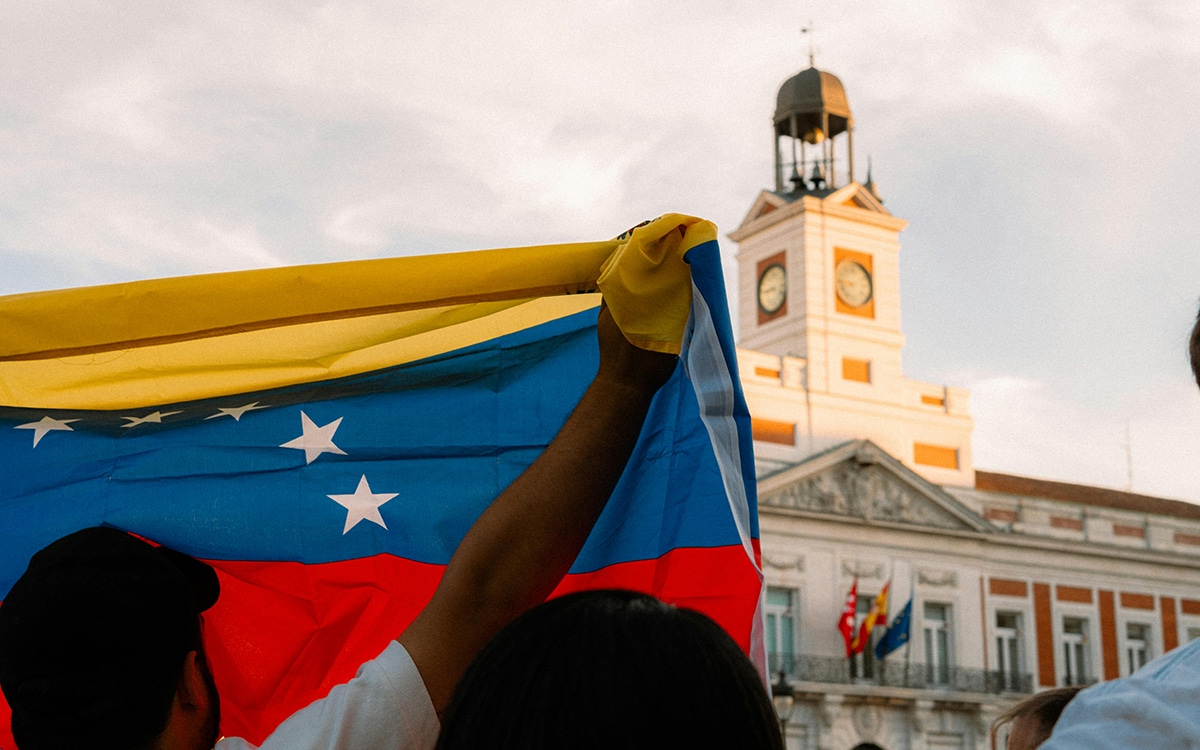Voices of Venezuela is a 10-episode podcast, covering various aspects of Venezuelan life, including migration, healthcare, and crime. It holds space for Venezuelan experiences and pairs them with policy experts to discuss the broader implications of the issues that have affected our communities for decades.
As a part of the Venezuelan diaspora, I grew up listening to my family’s own experiences. But it was difficult to find information outside of what was said on the other side of the telephone as a child. Today, I find Voices of Venezuela compelling as it provides a deeper analysis of current issues coupled with first-person experiences.
The crisis in Venezuela is devastating. Whenever someone asks me or my parents how the situation is there, for a moment, silence falls because there are few words to describe the conditions that bring us heartache. Voices of Venezuela offers a well-grounded starting point for anyone looking to learn about the country or expand their working knowledge.
Episode one is succinct, providing a five-minute history on Venezuela to lay the foundation for the following episodes, which are roughly 20 minutes each. In “The Migration Crisis,” the podcast explains that the scale of migration “rivals any other displacement crisis.” It discusses the barriers to Venezuelans gaining refugee status and the core behind such high levels of migration – such as a lack of food and electricity – and how the “attention that the Venezuelan displacement crisis gets is disproportionately low” to the crisis itself.
In a later episode, the podcast focuses on women’s experiences, sharing that “Their reality is poverty, their reality is violence, hunger, malnutrition, and poor health.” In 2021 and 2023, Amnesty International and Human Rights Watch both reported on the significant barriers Venezolanas face, such as the criminalization of abortion and a heightened risk of gender-based and sexual violence, in part due to “irregular migratory status” or “economic dependence in abusive relationships.” Venezuelan women are also impacted by a lack of access to healthcare and menstrual products and a high maternal mortality rate. Alexandra Wrinkler, the guest on this episode, outlines that while former president Hugo Chávez was a self-declared feminist, his policies failed to address the root causes of gender discrimination. Under Chávez, less than four percent of gender-based violence cases went to court, with the state being criticized for its lack of investigation (quick note: this article contains graphic descriptions of violence and sexual violence) on these crimes.
Human Rights Watch is featured on the “Human Rights & Political Persecution” episode, where host Moises Rendon explains that “in many cases, the regime uses violence in a calculated and systemic way, to repress and neutralize political opponents.”
Voices of Venezuela outlines how there has been extensive documentation of arbitrary arrests in Venezuela. “The response from the international community, I would say, has shifted. Some years ago, it was very hard to convince the world that things were so bad in Venezuela. That has changed. I would say that those who still defend the regime today are very few,” Rendon says.
Though the podcast aired in 2020, arbitrary arrests continue into 2024, “without access to legal counsel.” Amnesty International reported that “mass arrests of political opponents, possible torture of opposition leaders, illegal home raids, and the mobilization of pro-government armed groups have become widespread.” They add, “These violations follow a long-standing pattern that Amnesty International has been highlighting for years. The current events are part of a broader pattern of crimes against humanity, now escalating to a level that requires urgent international intervention.”
The final episode of Voices of Venezuela looks to the future. It emphasizes that under current government head Nicolás Maduro, Venezuela’s “many crises – from power outages to hyperinflation to human rights violations – cannot be solved.” They highlight the military’s role in keeping Maduro in power, and the necessity of eventual negotiations, despite prior failures.
The podcast also touched on the concept of targeted sanctions, which should “hurt the regime, and not the Venezuelan people.” Sanctions have increased the cost of living in Venezuela and worsened an already dire crisis. Mark Feierstein, the guest on this episode argues that sanctions have “gone overboard – the only thing we haven’t sanctioned is oxygen.” This episode is likely the most difficult to follow without familiarity on the topic, though it also provides an understanding of why Venezuela has seen such poor conditions for so long. Some of this discussion is also outdated, as it takes place prior to the 2020 US elections (not to mention the 2024 ones about to take place).
Though it is exasperating that four years later, Venezuela continues to face the same crises this podcast described in 2020 — it is a step forward that there is a new spotlight on Venezuela, due in part to the recent disputed elections.
Voices of Venezuela is an incredibly valuable resource, as it mixes experiences from the ground with high-quality resources, all led by a Venezuelan host. The situation surrounding Venezuela is complex, with a fluctuating timeline of short-term improvements and failures. There are many aspects of Venezuela that I could elaborate on, such as the high rate of deforestation and mining that harms Indigenous communities. However, I invite readers to listen to the reality of Venezuelans, and understand the situation for what it is – a humanitarian crisis that has been ongoing for decades.

